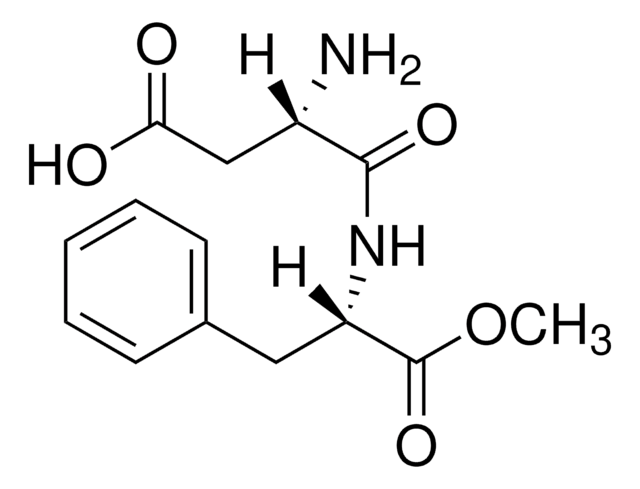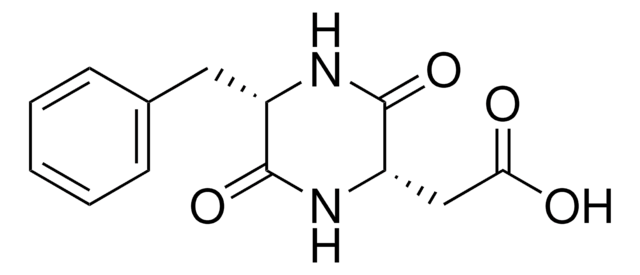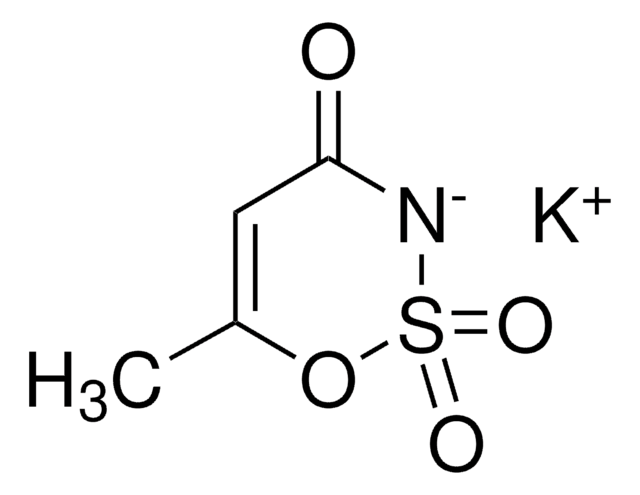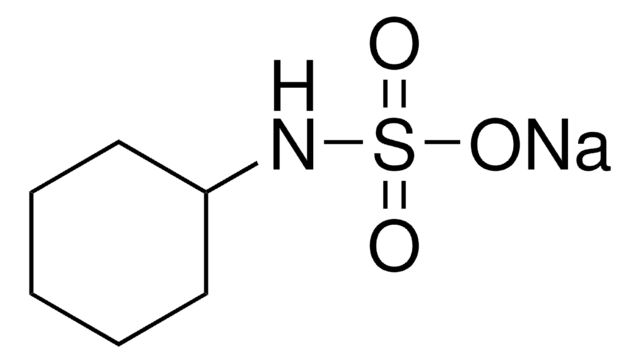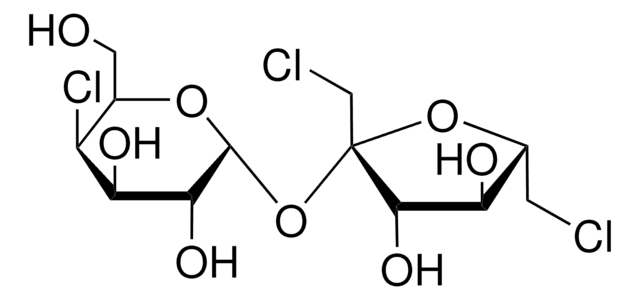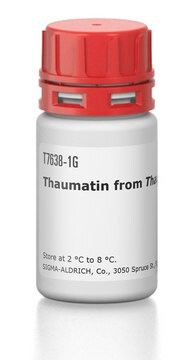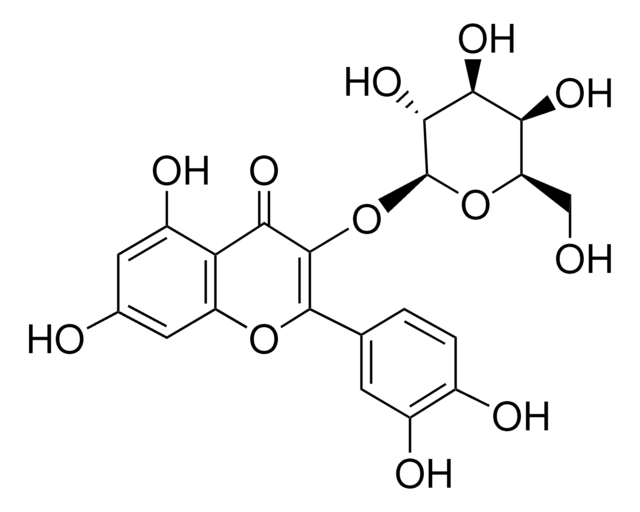A1320000
Aspartam
European Pharmacopoeia (EP) Reference Standard
Synonym(e):
Asp-Phe-OMe, N-(L-α-Aspartyl)-L-phenylalanin-methylester, Asp-Phe-Methylester, Aspartam
About This Item
Empfohlene Produkte
Qualität
pharmaceutical primary standard
Agentur
EP Reference Standard
API-Familie
aspartame
Hersteller/Markenname
EDQM
Anwendung(en)
pharmaceutical (small molecule)
Format
neat
Lagertemp.
2-8°C
SMILES String
COC(=O)[C@H](Cc1ccccc1)NC(=O)[C@@H](N)CC(O)=O
InChI
1S/C14H18N2O5/c1-21-14(20)11(7-9-5-3-2-4-6-9)16-13(19)10(15)8-12(17)18/h2-6,10-11H,7-8,15H2,1H3,(H,16,19)(H,17,18)/t10-,11-/m0/s1
InChIKey
IAOZJIPTCAWIRG-QWRGUYRKSA-N
Suchen Sie nach ähnlichen Produkten? Aufrufen Leitfaden zum Produktvergleich
Allgemeine Beschreibung
Weitere Informationen und Unterstützung finden Sie auf der Webseite der entsprechenden Pharmakopöe.
Anwendung
Verpackung
Sonstige Hinweise
Ähnliches Produkt
Lagerklassenschlüssel
11 - Combustible Solids
WGK
WGK 2
Flammpunkt (°F)
Not applicable
Flammpunkt (°C)
Not applicable
Hier finden Sie alle aktuellen Versionen:
Analysenzertifikate (COA)
Leider sind derzeit keine COAs für dieses Produkt online verfügbar.
Wenn Sie Hilfe benötigen, wenden Sie sich bitte an Kundensupport
Besitzen Sie dieses Produkt bereits?
In der Dokumentenbibliothek finden Sie die Dokumentation zu den Produkten, die Sie kürzlich erworben haben.
Kunden haben sich ebenfalls angesehen
Unser Team von Wissenschaftlern verfügt über Erfahrung in allen Forschungsbereichen einschließlich Life Science, Materialwissenschaften, chemischer Synthese, Chromatographie, Analytik und vielen mehr..
Setzen Sie sich mit dem technischen Dienst in Verbindung.